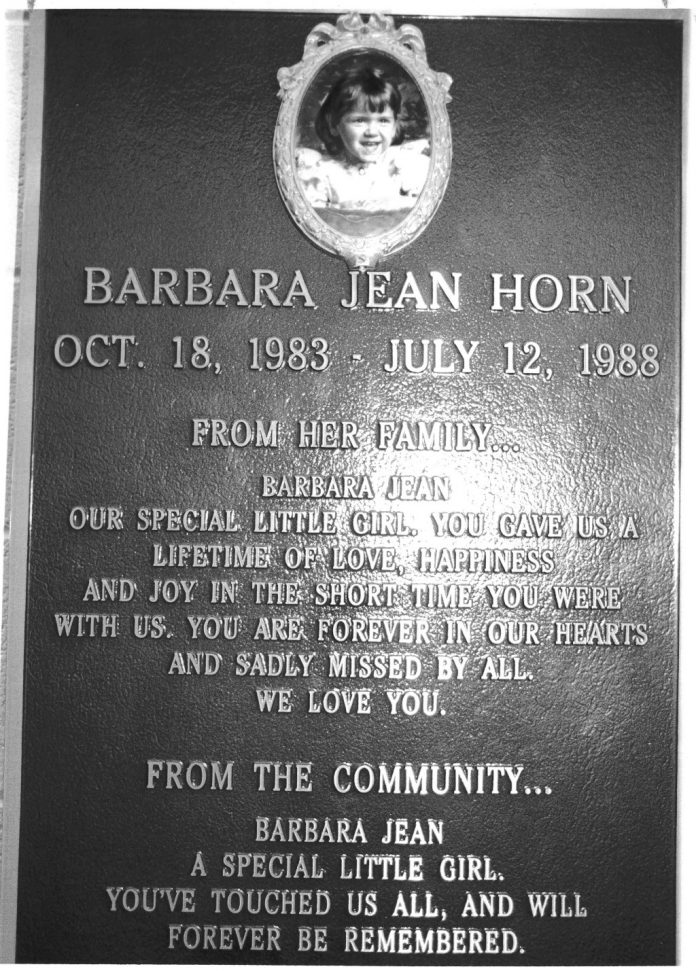The Philadelphia Court of Common Pleas Criminal Division has ordered the state Department of Corrections to transport Walter Ogrod to an outside hospital for testing and treatment for possible COVID-19 infection.
The District Attorney’s Office’s Conviction Integrity Unit supported Ogrod’s emergency health care motion.
Judge Leon Tucker signed the order for Ogrod, who was wheezing and coughing and had a temperature of 102.8.
Ogrod, 55, is on death row at State Correctional Institution – Phoenix, in Collegeville.
At the request of Ogrod’s lawyers, the DA’s office reviewed evidence and determined that he is “likely innocent” of the 1988 murder of a 4-year-old Castor Gardens girl, Barbara Jean Horn.
The office is asking a Common Pleas Court judge to vacate Ogrod’s conviction and sentence.
The following is a statement from James Rollins, one of Ogrod’s attorneys:
“We are grateful that the court has ordered the Department of Corrections to allow Walter Ogrod to receive testing and treatment for possible COVID-19 outside of the prison. To make an innocent man remain even one extra day on death row is unjust. To leave him on death row showing symptoms of COVID-19 without adequate medical treatment would be unconscionable.
“Mr. Ogrod has spent nearly three decades on Pennsylvania’s death row for a crime he did not commit. All interested parties, including the Conviction Integrity Unit of the Philadelphia District Attorney’s Office, have agreed that he was convicted based on unreliable scientific evidence, prosecutorial misconduct, due process violations, and false testimony.
“The court has not yet ruled on Mr. Ogrod’s motion seeking the court’s expedited ruling on his and the Commonwealth’s filings through which the Commonwealth concedes he is likely innocent and is entitled to have his conviction and sentence vacated. Every day that Mr. Ogrod, an innocent man, spends in prison is a shameful injustice. He has been through enough. It is past time for him to be released from his wrongful incarceration.”
The Conviction Integrity Unit determined that prosecutors knew or should have known that Barbara Jean died of asphyxia, not by blows from a weight bar, as was alleged at trial. In addition, the CIU believes the jailhouse informants used at trial colluded for favorable treatment in their own cases. The unit ruled that Ogrod’s confession was false and unreliable. And it noted that the descriptions of men seen carrying a box on the day Barbara Jean’s body was found did not resemble and were smaller than the 6-foot-1, 220-pound Ogrod.
Barbara Jean was playing outside on the 7200 block of Rutland St. on July 12, 1988, when she disappeared. Her naked and battered body was found later in a plastic bag stuffed in a cardboard television box put out in the trash nearby on the 1400 block of St. Vincent St.
The case remained unsolved for four years, and Robert Stack ran a story on Unsolved Mysteries.
Police arrested Ogrod in 1992, after re-interviewing him and other neighbors. He lived across the street from Barbara Jean, who lived with her mom, Sharon, and stepfather, John Fahy.
Ogrod, a bakery delivery driver at the time of his arrest, signed a confession after being interrogated at the Roundhouse, admitting he lured Barbara Jean into the basement of his home at 7244 Rutland St. by offering her chocolate candy. Ogrod tried to sexually assault Barbara Jean and, when she screamed, hit her over the head with an iron bar from a weight-lifting set.
At his 1993 trial, Ogrod was almost found not guilty, but a juror — retired fireman Alfred Szewczak, of Fishtown — changed his mind at the last second. Because there were only 11 votes for an acquittal, a mistrial was granted.
In 1996, Ogrod went on trial again. This time, a jury convicted him of murder and involuntary deviate sexual intercourse after less than two hours of deliberation and sentenced him to die. The key testimony came from a jailhouse snitch who, Ogrod’s lawyers allege, received made-up information from John Hall, nicknamed “The Monsignor” for his incredible ability to elicit confessions from fellow inmates in major cases.
Ogrod appealed, arguing in part that police detectives coerced his confession and his attorney was ineffective.
The state Supreme Court, though, upheld the conviction and death sentence in 2003. Then-District Attorney Lynne Abraham said, “We are gratified by the court’s decision to uphold the conviction and death penalty. The murder of 4-year-old Barbara Jean Horn was especially brutal, and justice was done in this case.”
Then-Gov. Ed Rendell signed Ogrod’s death warrant in 2005.
Ogrod’s prosecutor in the 1996 retrial, Judy Rubino, agrees that he should receive a new trial. ••





